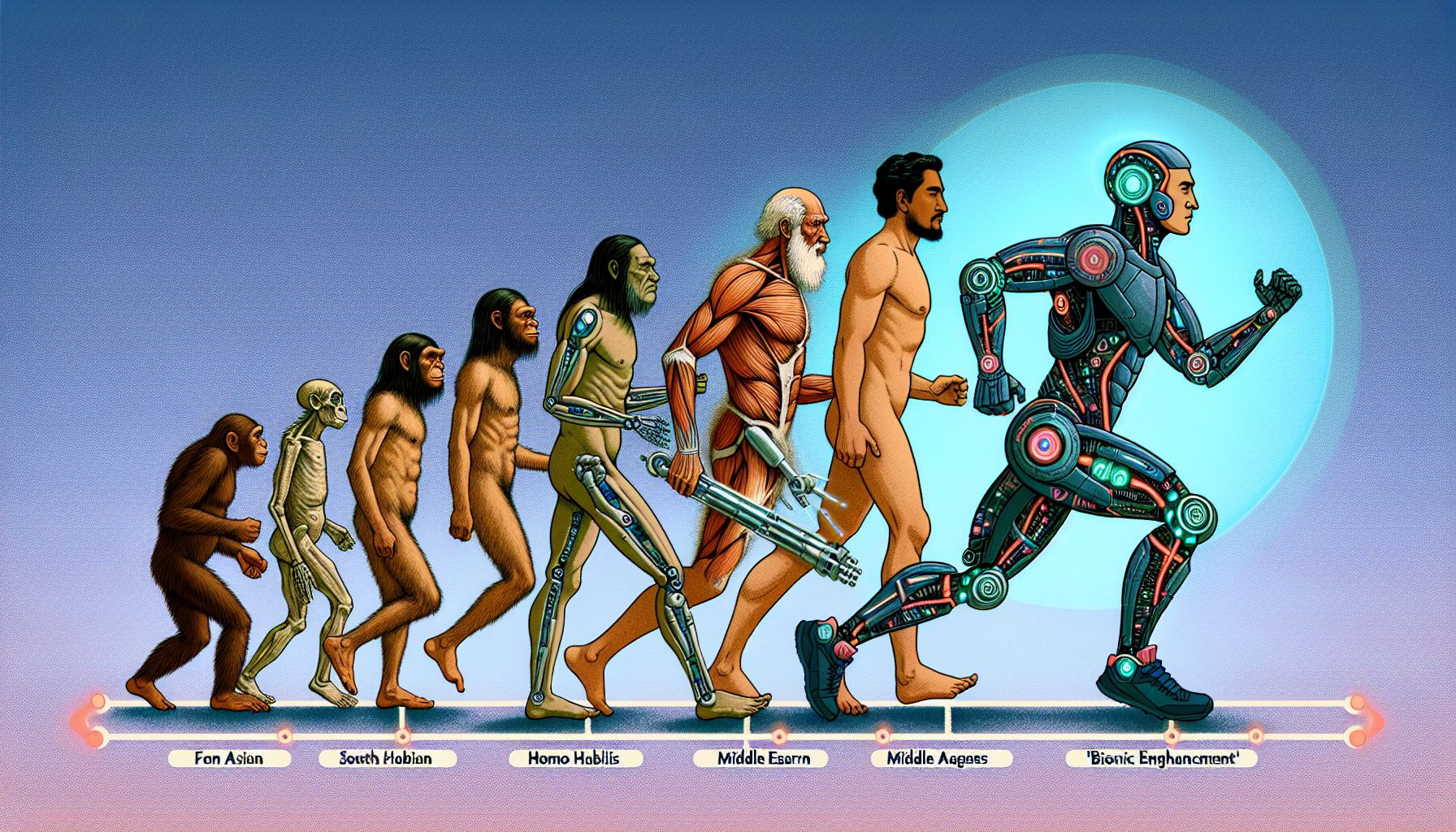📌 Let’s explore the topic in depth and see what insights we can uncover.
⚡ “Did you ever dream of having superhero-like abilities? Thanks to rapid advances in biotechnology, we’re on the brink of an era where Bionic Enhancement could turn human evolution into a customizable journey.”
The human body is an awe-inspiring biological machine, evolved through countless generations to adapt to various challenges and environments. But as we step into a new era of unprecedented technological advancements, we find ourselves at the precipice of a new evolutionary phase - the era of bionic enhancement. 🔍 Interestingly, not just about sprouting wings or having eyes that can zoom in like a camera lens. It’s about harnessing the power of biotechnology to augment our natural abilities, heal our bodies, and expand the limits of our potential. In this blog post, we will delve deep into the realm of bionic enhancement, exploring the fascinating intersection of biotechnology and human evolution. We will also explore the implications of these advancements on our society and the very definition of what it means to be human. Let’s embark on this futuristic journey together. Buckle up!
🦾 Bionic Enhancement: A Glimpse into the Future

"Embracing Evolution: The Dawn of Bionic Humans"
Bionic enhancements refer to the integration of artificial devices or technologies into the human body to improve physical capabilities, rehabilitate, or even cure ailments. In essence, it’s about upgrading the human body with machine parts. Let’s take a brief look at some examples:
Prosthetic limbs
From simple mechanical devices, prosthetics have evolved into sophisticated bionic limbs that can mimic natural movements, respond to nerve signals, and even provide sensory feedback.
Exoskeletons
🧩 As for These, they’re wearable devices that augment the user’s strength and endurance. They can assist people with physical disabilities or amplify the abilities of workers in labor-intensive jobs.
Cochlear implants
These devices can restore hearing to people with severe hearing loss by directly stimulating the auditory nerve.
Bionic eyes
These groundbreaking devices can restore sight to the blind by capturing images and transmitting them to the brain. 🧩 As for These, they’re just a few examples of how we’re using technology to enhance our bodies. But the future holds even more exciting possibilities.
🧬 The Intersection of Biotechnology and Human Evolution
Biotechnology is the use of living systems and organisms to develop or make products. This can range from GM crops resistant to pests, to using bacteria to clean up oil spills. But when it comes to human evolution, biotechnology can play a significant role in shaping our future.
Here are a few ways in which biotechnology intersects with human evolution:
Genetic engineering
By manipulating our DNA, we could potentially eliminate genetic disorders, increase lifespan, or even enhance our physical and cognitive abilities. Imagine being able to customize your child’s genes to make them immune to diseases, or even smarter and stronger.
Regenerative medicine
This involves creating tissues and organs in the lab to replace damaged ones. This could make organ transplants a thing of the past and significantly increase our lifespan.
Brain-computer interfaces
These devices can connect our brains directly to computers, allowing us to control devices with our minds, enhance our cognitive abilities, or even upload our consciousness to a digital medium. While these possibilities may sound like science fiction, they are rapidly becoming a reality. But with such power comes great responsibility.
🌍 Ethical Considerations and Implications for Society
The possibilities of bionic enhancements and biotechnology are immense. However, they also raise a multitude of ethical questions and implications for society.
Equality
Will these enhancements be available to everyone, or will they only be accessible to the rich, leading to a new class divide?
Identity
If we can change our bodies and minds at will, what does it mean to be human?
Consent
Should parents be allowed to genetically engineer their unborn children?
Security
Could these technologies be weaponized or used to invade our privacy?
🧩 As for These, they’re complex questions with no easy answers. As we move forward, it’s crucial that we have open and honest discussions about these issues, and establish strong ethical guidelines to ensure these technologies are used for the betterment of all humanity.
🧭 Conclusion
The intersection of biotechnology and human evolution brings us to the cusp of a new era. Bionic enhancements hold the promise of a future where physical limitations can be overcome, diseases eliminated, and human potential expanded beyond what we can currently imagine. However, with these advances comes a host of ethical and societal implications that need to be carefully considered. We stand at a crossroad in our evolutionary journey, where we have the power to shape not just our environment, but our bodies and minds as well. As we stride into this brave new world, it is vital to remember that the power of bionic enhancement should not merely be used to create a divide, but rather to unite us as a species, helping us overcome challenges together and propelling us into an exciting new phase of human evolution. In the end, it’s not just about how these technologies can change us, but how we can use them to change the world for the better. Because evolution is not just about survival, it’s about progress. And with bionic enhancements and biotechnology, we have the potential to make unimaginable progress.
🤖 Stay tuned as we decode the future of innovation!
